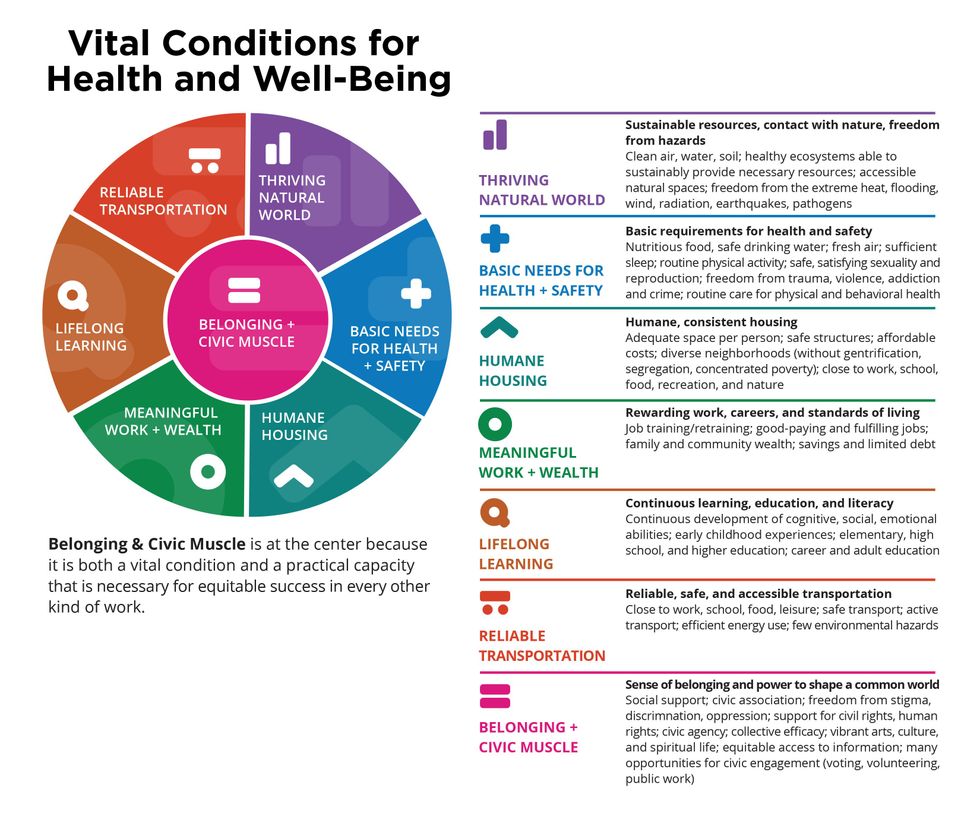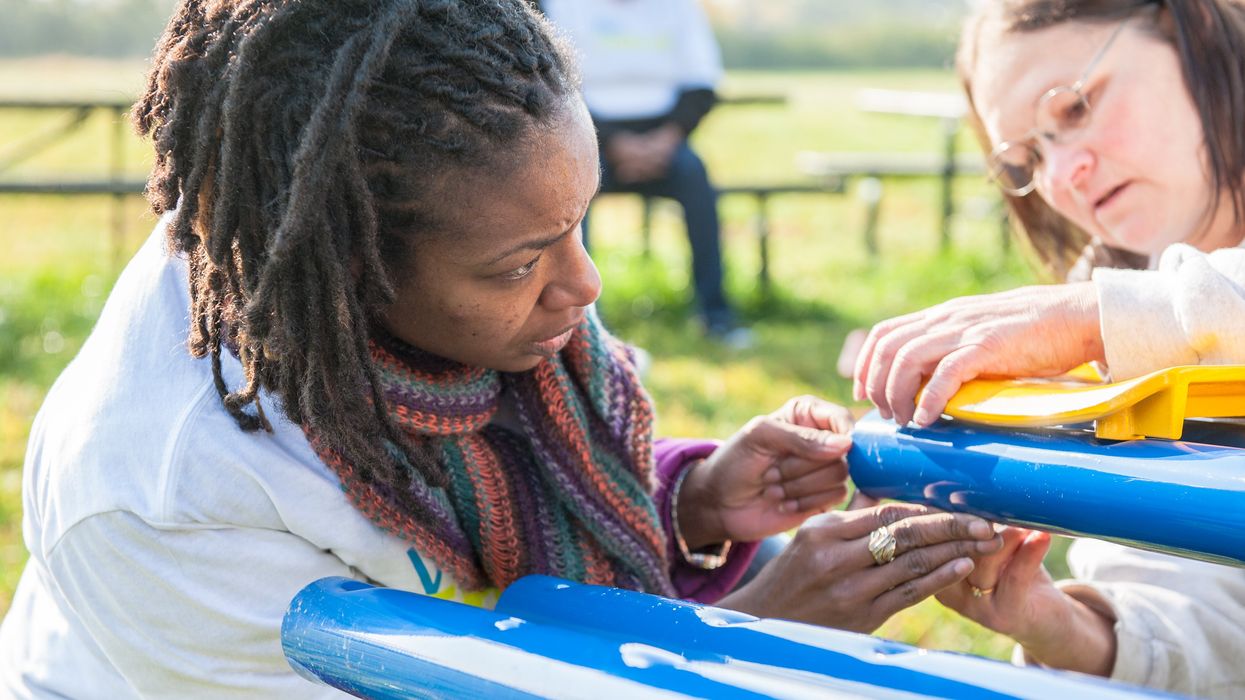Creegan is a director of systems change at The Rippel Foundation. Nam is project director of We Belong Here at Civic Commons.
In the midst of life’s many demands, finding the time to cast a ballot during an election year can be challenging. For Seattle’s 22 percent of residents who speak languages other than English at home, voting materials that are only available in English can present an added barrier to participation. That’s why a coalition of advocates, including Civic Commons, worked with Google to ensure that residents’ voting pamphlets can be translated into any language in Google’s library.
For voters who communicate in another language, this effort is a meaningful indication that they belong, which has impacts far beyond the voting booth.
The overwhelming majority of a person’s well-being – between 80 percent and 90 percent – is determined by non-medical factors. There’s evidence that belonging (a feeling of connection to others and to a community) and civic muscle (having power to shape a common world) are critical to overall health. Belonging speaks to the inherent need that all people have to feel like an integral part of a community, embraced for who they are and valued for what they bring. People must also have civic muscle to feel they are equipped with the resources and knowledge to advocate for their own health and well-being and that of others around them.
Belonging and civic muscle are central to what are known as the vital conditions for health and well-being – the elements everyone needs to thrive. Those elements also include basic needs for health and safety, humane housing, a thriving natural world, meaningful work and wealth, lifelong learning, and reliable transportation.

Increasingly, organizations and individuals focused on systems change – including policy makers – are recognizing that it is not possible to counter systemic threats such as racism, sexism and persistent health inequities by simply delivering more services to people in need. This business-as-usual approach of relying on top-down, reactive solutions often disempowers people, squanders resources and is an impediment to long-term change. In addition, investing in urgent services without a pathway to stabilization often creates even more reliance on urgent services down the line. The cycle will continue, uninterrupted, until people invest differently.
Instead, to establish systems that are equitable by design, stewards across the United States are demonstrating how to connect across differences and widen the circle of human belonging. Stewards are people, organizations or networks that work with others to create the conditions everyone needs to thrive together, beginning with those who are struggling and suffering. Stewardship, which centers belonging and civic muscle, is an antidote to the disconnection, fragmentation, and systemic exclusion that too often divides Americans and causes so much struggling and suffering.
In central Wisconsin, for example, dozens of community stewards came together to form Imagine Fox Cities. There, people spanning political ideologies, races, ethnicities, incomes and ages are working to create a place where all residents feel they belong and can prosper. To do this, they are focused on realizing a vision to thrive together that rests on four pillars: getting kids off to a great start in life; fostering an economy that works for all; developing thriving natural and cultural spaces that bring us together; and ensuring that everyone feels like they belong.
In Delaware, Shané Darby founded Black Mothers in Power to build belonging among members of her community after experiencing symptoms of postpartum depression and feeling that she had nowhere to turn. Furthermore, the groundswell of support behind participatory budgeting — a democratic process in which residents get to decide how to use public funds — shows how much energy is behind building civic muscle at the most grassroots levels.
The need to belong is deeply rooted in human evolution. Belonging connects us to each other and to the world around us, while a lack of belonging is tied to a host of negative health outcomes, including anxiety, depression and substance use disorder. The surgeon general of the United States recently sounded the alarm about Americans’ increasing sense of loneliness. Evidence suggests that lack of social connections increases risk of premature death by more than 60 percent, and it places individuals at elevated risk for chronic disease, environmental hazards, and violence. Besides providing a natural antidote to loneliness, belonging and civic muscle can expand the vital conditions for health and well-being in countless other ways, such as improving maternal mental health, as Darby discovered.
Our organizations, The Rippel Foundation and Civic Commons, along with many of our peers, have spent considerable time and energy developing resources that anyone can use to begin their journey toward building belonging and civic muscle in their communities. Civic Commons developed the Belonging Toolkit as part of its work to cultivate belonging in the greater Seattle area. The Othering and Belonging Institute at the University of California, Berkeley has curated an array of resources, including podcasts, newsletters and presentations, to equip anyone interested with the tools they need to build belonging.
Belonging and civic muscle provide a way for people with different and divergent interests to work together around common values. Every single day, we can all make choices that either deepen or erode belonging and civic muscle. Especially in what is likely to be another divisive political year, we must resist the urge to dismiss or exclude people who do not look, speak, or think exactly as we do. Start now, wherever you have a seat at the table. Seek diverse viewpoints and show compassion to your neighbors.
Most of all, never underestimate the power of showing someone they belong.



















